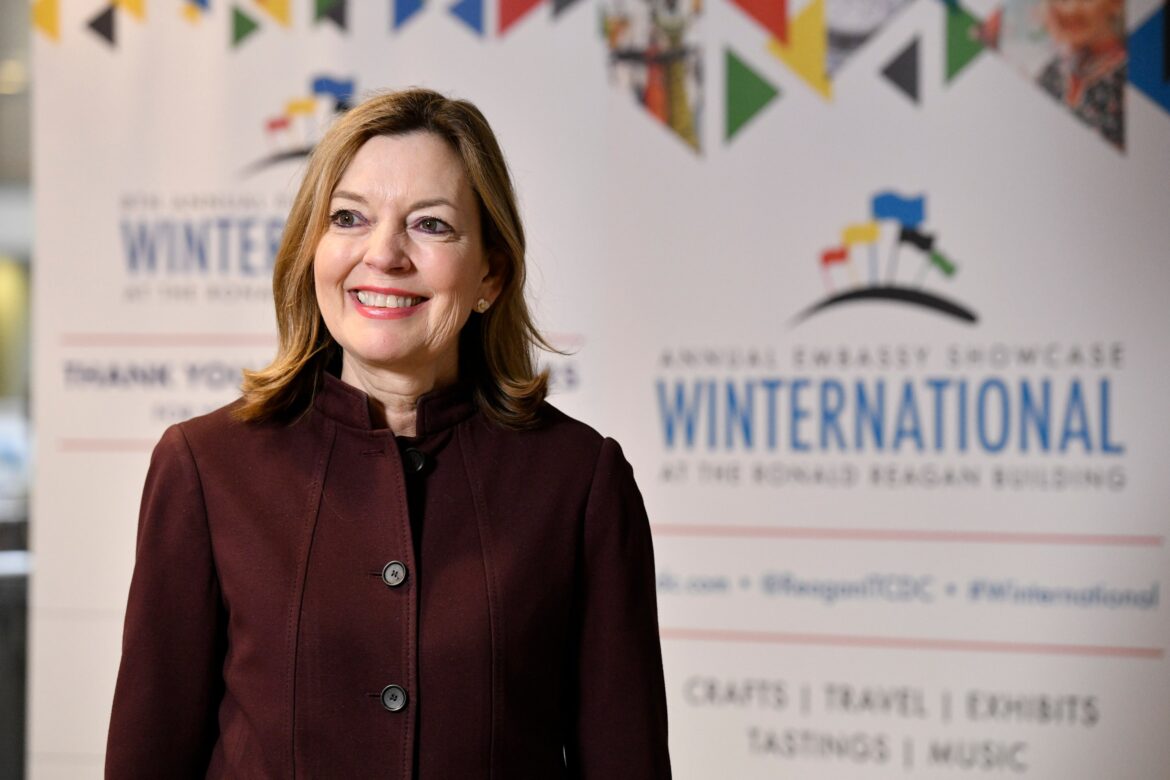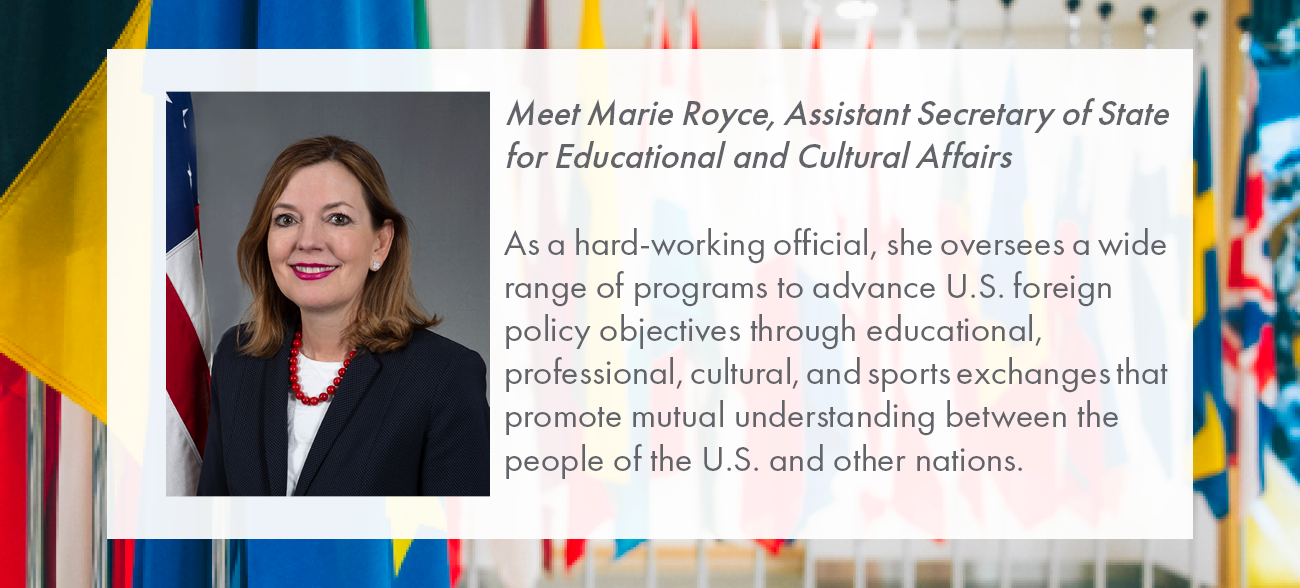
Marie Royce, Assistant Secretary of State for Educational and Cultural Affairs (ECA), delivered the keynote address opening this year's 8th Annual Winternational Embassy Showcase. As a passionate champion of people-to-people exchanges, Ms. Royce embodies the foundational purpose of Winternational – diplomacy through a global exchange of culture.
Prior to becoming the Assistant Secretary in 2018, Ms. Royce was the CEO and Principal of Marie Royce LLC in California and has over 30 years of experience in the private sector with Fortune 500 companies. As a small business owner, she learned the necessary skills to create and launch start-ups and new initiatives, serving as a key business liaison to 80 countries. As a former full-time professor at California State Polytechnic University, Ms. Royce led an international grant program between universities and was later awarded with the Distinguished Alumni Award. Most recently, Ms. Royce was selected as an American Council of Young Political Leaders (ACYPL) delegate to Hungary and Poland and received the ACYPL Honors Award in 2018.
We asked the Assistant Secretary to share some of her views on the programs she oversees at the State Department:
Q: As a passionate champion of people-to-people exchanges, what are you currently doing to strengthen and improve Department of State exchange programs?
Department of State exchange programs create lasting connections between the United States and countries of the world. Educational and cultural exchanges are crucial to our U.S. foreign policy. As President Trump notes in his National Security Strategy: “People-to-people exchanges create the networks of current and future political, civil society, and educational leaders who will extend a free and prosperous world.” Exchange programs are one of the best ways for Americans and people from other countries to learn about each other’s cultures, create friendships, and develop skills. I like to say that the Bureau of Educational and Cultural Affairs (ECA), comprised of our dedicated public diplomacy team, moves people to move ideas.
ECA is the global leader in people-to-people exchanges, plays a key role in shaping America’s public diplomacy efforts, and helps strengthen relationships around the world.
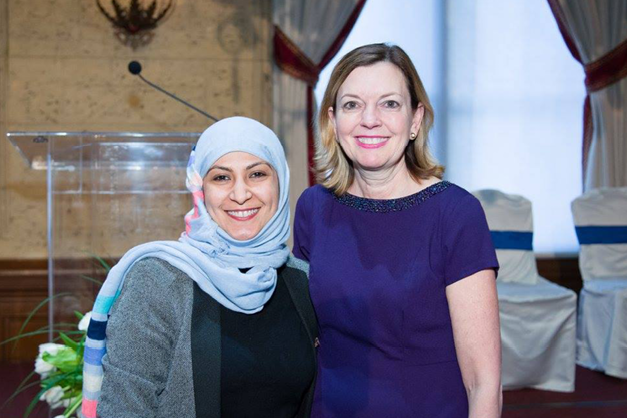
"We want every student to know there are quality U.S. institutions at all price points."
One example of international mobility is through academic exchange programs. According to the 2019 Open Doors Report on International Education Exchange, for the fourth year in a row, more than one million international students are studying in the United States. Students from around the world are drawn to the United States because of the excellence, diversity, and academic freedom of our public and private higher education institutions. They are also aided by an ECA resource called EducationUSA, a free educational advising network comprised of over 435 advising centers in 180 countries. EducationUSA works on behalf of all accredited U.S. higher education institutions. This year we have enhanced our global outreach to international students, parents, and high school counselors to discuss cost-effective strategies for study in the United States and to promote the benefits of the 2+2 model, combining study at a community college and a four-year college or university. We want every student to know there are quality U.S. institutions at all price points.
That work pays off. Just last year, international students contributed nearly $45 billion to the U.S. economy and supported over 455,000 U.S. jobs. Importantly, international students bring diverse perspectives to our campuses, classrooms, and communities – especially to the 90% of American students who do not study abroad before graduating. This two-way relationship is beneficial to our national security, the global economy, and future diplomatic relationships.
Another way we are moving people to move ideas is through our steadfast commitment to engaging women and girls through our public diplomacy programs. In my first year leading the bureau, ECA committed over $25 million and reached over 150,000 women around the world in programs specifically designed to empower women and girls. Each year, thousands of emerging women leaders come to the United States on ECA exchange programs, including through TechWomen, Community Solutions, espnW Global Sports Mentorship, Fortune Most Powerful Women, and the Hidden No More exchange program for women in STEM.
In March 2019, ECA launched a new initiative to empower women entrepreneurs around the world – the Academy for Women Entrepreneurs (AWE). AWE supports the White House-led Women’s Global Development and Prosperity (W-GDP) Initiative, which is designed to empower at least 50 million women world-wide by 2025 to fulfill their economic potential, and in doing so, create conditions for increased stability, security, and prosperity for all. AWE supports two important pillars of the W-GDP Initiative: women prospering in the workforce, and women succeeding as entrepreneurs. And earlier this month we signed an exciting Memorandum of Understanding (MOU) with Arizona State University and the Freeport-McMoRan Foundation. They’ve committed to developing the skills of prospective women entrepreneurs in the AWE program by utilizing an online course and facilitating training. We are very excited to expand AWE to more countries this year!
Overall, our public diplomacy programs create and sustain the connections necessary to advance U.S. foreign policy and national security goals. Ultimately, they help maintain America’s standing in the international community by promoting U.S. values and mutual understanding.
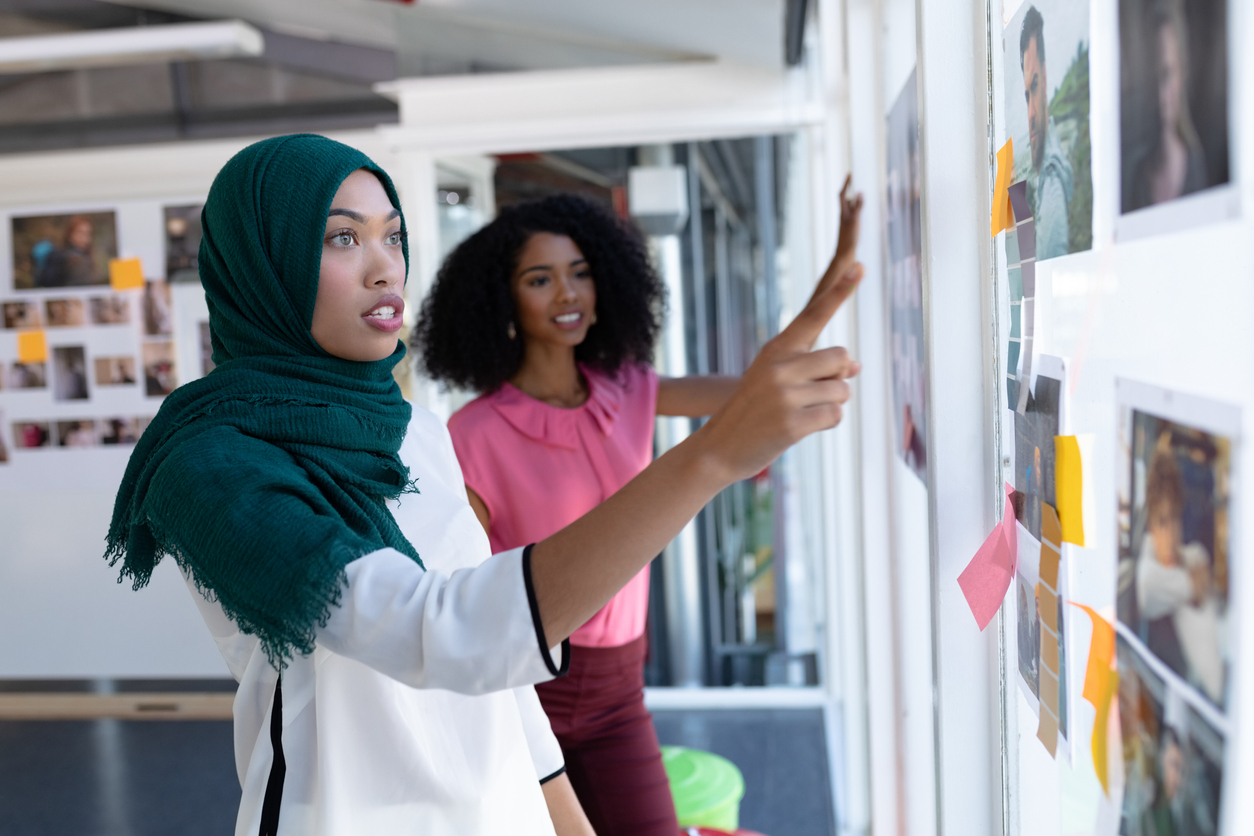
"AWE supports two important pillars of the W-GDP Initiative: women prospering in the workforce, and women succeeding as entrepreneurs."
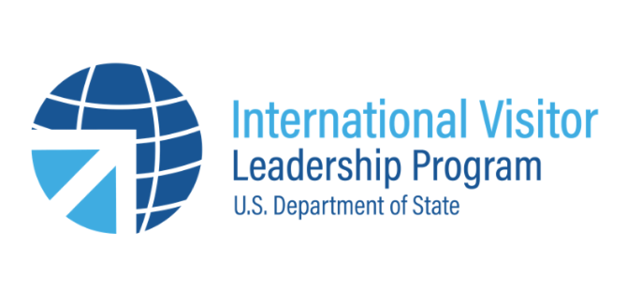

Q: The International Visitor Leadership Program (IVLP) is celebrating its 80th anniversary, please share with us why it's been successful and the goals for the program year.
The International Visitor Leadership Program (IVLP) is the U.S. Department of State’s premier professional exchange program. Through short-term visits to the United States, current and emerging foreign leaders in a variety of fields experience this country firsthand and cultivate lasting relationships with their American counterparts. Professional meetings reflect the participants’ professional interests and support the foreign policy goals of the United States.
For the past 80 years, the IVLP has connected current and emerging leaders from around the world to the United States. The program has grown to include over 225,000 alumni and continues to build vital linkages between citizens in the United States and emerging leaders throughout the world. Throughout the year 2020, we are featuring 80 accomplished IVLP alumni and the impact their experiences brought to the global community. These stories will be showcased on our website here and on social media via the hashtag #FacesofExchange.
From more than 500 current and former heads of state, to leaders in boardrooms, classrooms, community organizations, the arts, and NGOs – the breadth and depth of the IVLP is amazing. Ultimately, our alumni contribute to a more peaceful and prosperous world. As Secretary Mike Pompeo says, “Here at State, we’re in the business of building partnerships and advancing America’s tradition as a force for good in the world.” IVLP is one of our most revered methods of building partnerships, and my hope is that more Americans will join us in this effort by becoming citizen diplomats who welcome these exchange participants into their communities.
Q: The American Women for International Understanding (AWIU) recognized you with their Internationalism Award in 2013. Tell us about this award and why it was so important to you.
It was such an honor to be recognized with the AWIU Internationalism Award, which is presented to individuals who have addressed concerns and issues facing women worldwide, including those who have fostered and encouraged cross-cultural dialogue. I am humbled to be among a dedicated group of women who have received the award, including former First Lady Laura Bush and Olympian Anita DeFranz.
The award is presented annually during the International Women of Courage events, which happens to coincide with the conclusion of an IVLP program focused on extraordinary women from around the world. The program is part of the Secretary of State’s International Women of Courage (IWOC) Award. Since its inception in March 2007, the State Department has recognized more than 120 women from more than 65 different countries. My bureau has the honor of working with the IWOC Award winners as we send them on an IVLP exchange program to meet with U.S. counterparts and leaders in several cities and experience America firsthand.
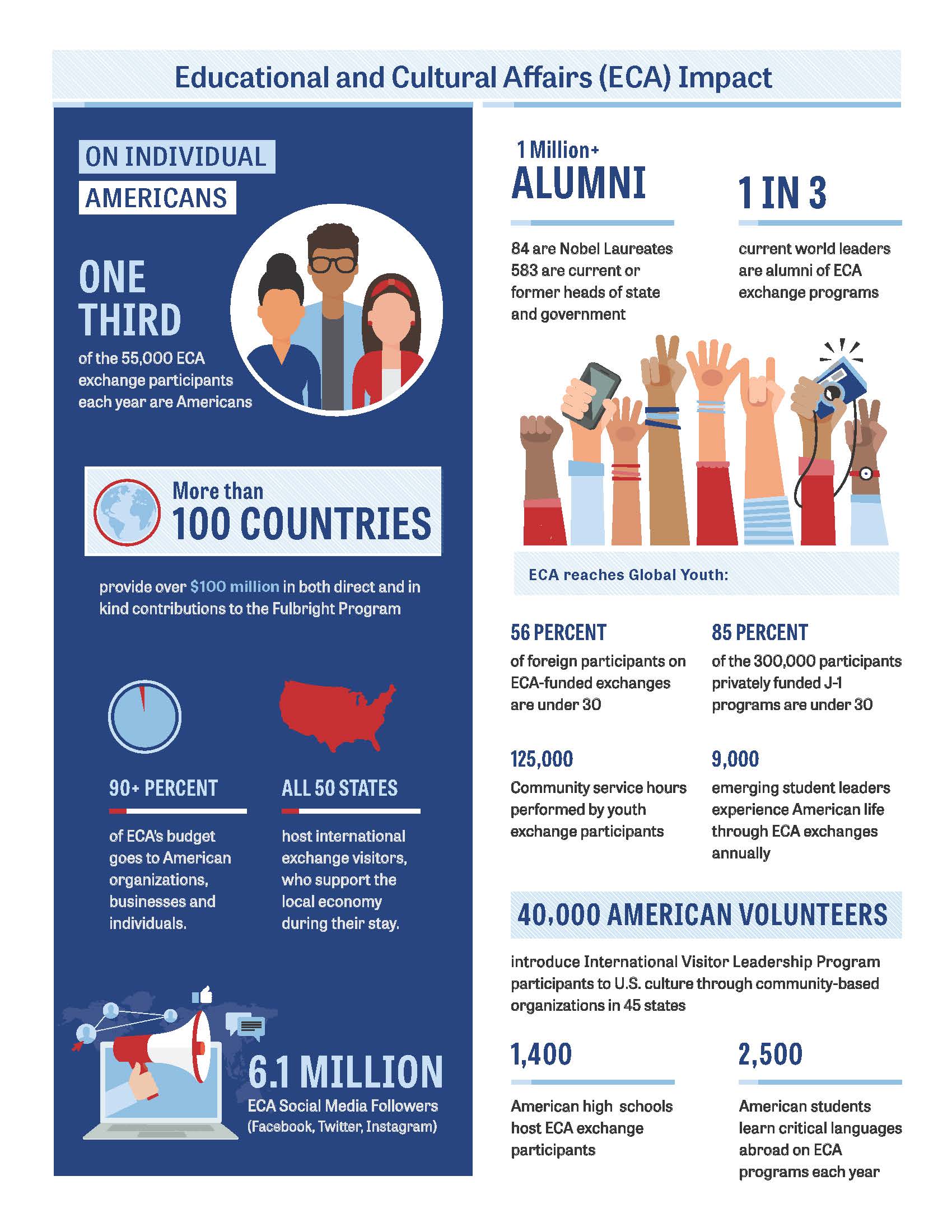
The IVLP has hosted Awardees in 36 cities across the United States. International Women of Courage meet and share ideas with Americans who work on similar issues -- from increasing international security, to advancing the rule of law and human rights, to combating gender-based violence, and promoting education, entrepreneurship and women’s economic empowerment. These new relationships with Americans will lead to ongoing cooperation in finding solutions to global challenges here in the United States and in countries around the world.
An alumna of the 2017 International Women of Courage program said, “courage is contagious” and I couldn’t agree more. The Internationalism Award holds extra meaning for me now that I’ve had the privilege to meet with the women throughout their IVLP experience.
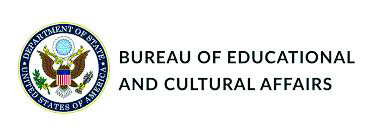
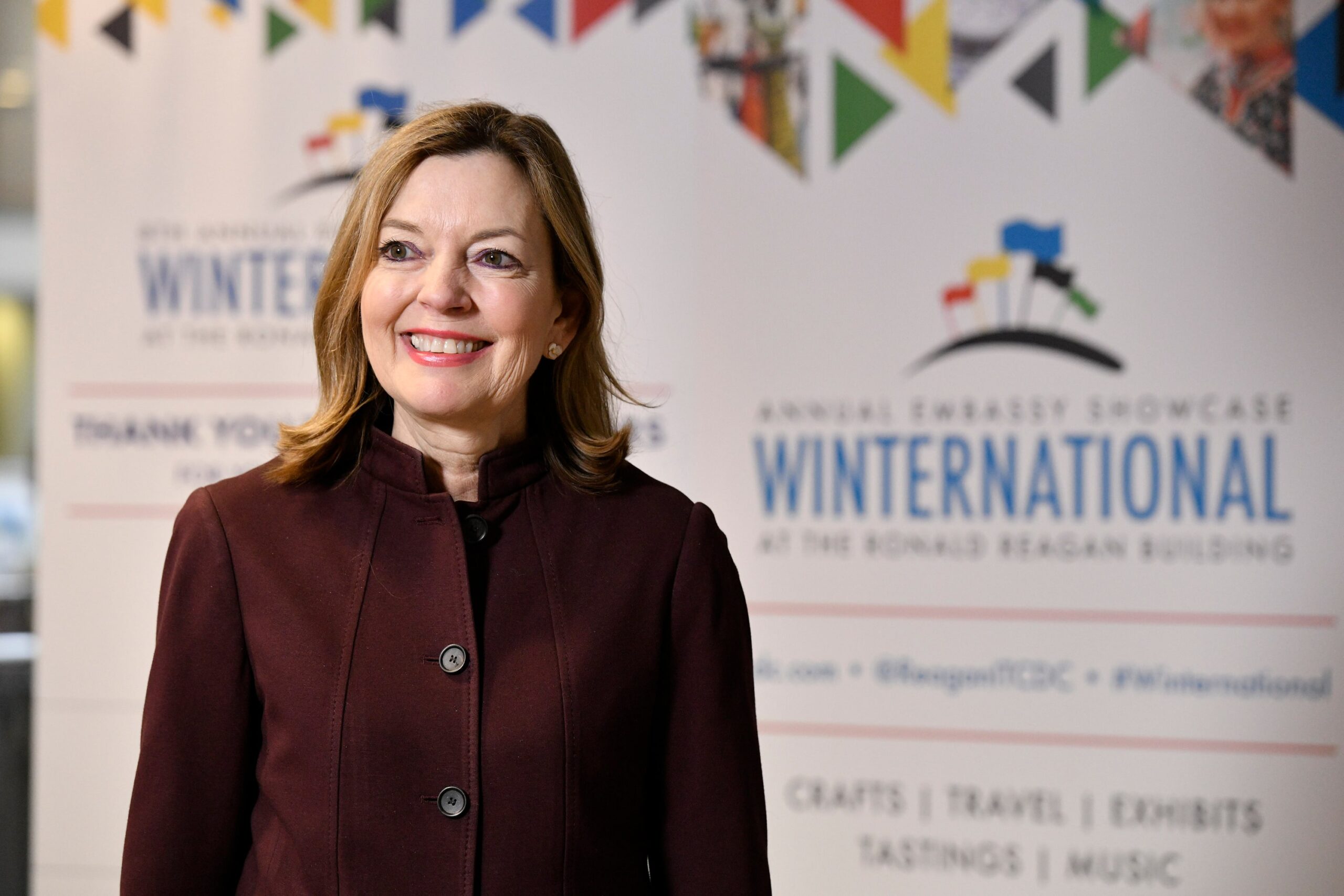
Assistant Secretary, Marie Royce at the 8th Annual Winternational Embassy Showcase Ambassador's Circle.
Q: We were honored to have you offer the keynote address at our 8th Winternational Embassy Showcase where 61 embassies participated. Please share with us your insights on the importance of cultural diplomacy.
Our mission is to support American foreign policy goals by opening doors and connecting people from a wide variety of backgrounds and beliefs. Cultural diplomacy is a key component when it comes to our bi-lateral foreign policy with countries. Not only does it provide vivid, compelling examples of openness, tolerance, and American values, but it is also critical in our work to protect and preserve international cultural property.
ECA’s Cultural Heritage Center leads the U.S. cultural heritage foreign policy. Our work includes the coordination of diplomatic and law enforcement efforts to combat antiquities trafficking, disrupt trafficking networks, and protect against the looting and destruction of cultural property around the world. We also assist Native American efforts to recover items held in foreign museums or offered for sale in foreign countries. In addition, the U.S. Ambassadors Fund for Cultural Preservation awards small and large grants for the preservation of cultural sites, cultural objects, and forms of traditional cultural expression in developing countries around the world.
Cultural exchange programs bring the rich artistic traditions of the United States to foreign audiences through exchanges in visual arts, music, performing arts, film, and cultural studies. For example, our current U.S. cultural envoys include a beatbox trio traveling to Madagascar, a theater troupe to Egypt, and a poet to Kazakhstan, to name but a few.
People are inspired through shared cultural endeavors. During an American Music Abroad tour in Tajikistan, Nashville-based bluegrass band Humming House was unexpectedly trapped when an avalanche cut off the road they were on. Wanting to pay forward the kindness they had experienced in Tajikistan to hundreds of their fellow stranded travelers, the band mounted a flatbed trailer for an impromptu acoustic concert that went viral. The band bolstered the spirits of their fellow travelers and created considerable goodwill toward the United States. During the rest of their tour, the band helped dispel myths and disinformation about Americans, and engaged youth through educational and cultural initiatives.
It’s these types of exchanges that create lasting impacts for everyone involved.
For more information about Marie Royce and her work in cultural diplomacy, click here.

